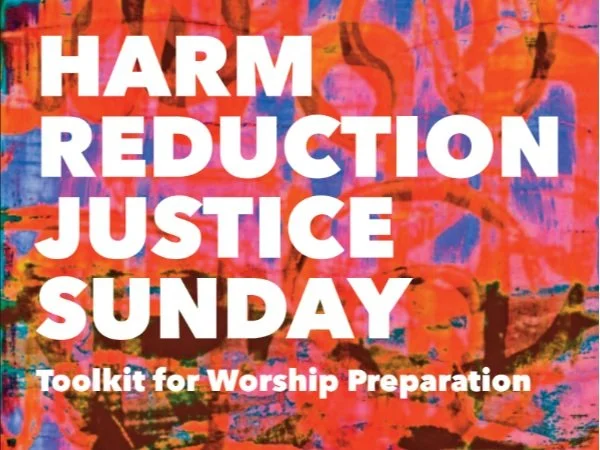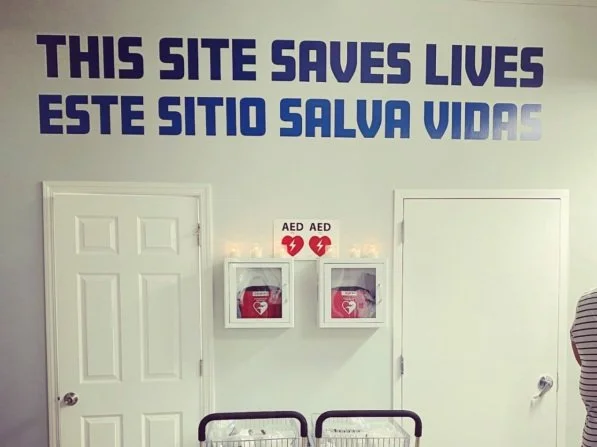We are going to continue to be Faith in Harm Reduction. And we really believe in the principles and always have, and we really believe in the elders that were part of this movement and we are in deep gratitude for their sacrifices to do this work. And so we're not going to step away from it. And I think our conversation has been, you know, if we lose money because of that commitment, then so be it. But we have to continue to show up for people who use drugs in a way that feels consistent and feels in alignment with where we've been and what we know is right.
Read MoreOn this episode of Fill the JAR, we talk with Hill Brown – Hill Brown (they/them), based in rural Western North Carolina, serves as the Southern Ambassador of Harm Reduction and Overdose Prevention Ministries for the United Church of Christ and the Southern Director of Faith in Harm Reduction.
Read More“Faith leaders are exploring how churches and other religious institutions can serve people who use drugs..”
Read MoreBerry, who introduced the radically inclusive toolkit during the webinar, explained the powerful and varied uses of the kit. “Perhaps this is the first time you’re bringing [the subject] up to your congregation,” she said. “How is God bringing it up today? [The resource] is available for use outside of worship, too: for the beginning of staff meetings, or as devotionals.”
Read MoreWe are centering people who use drugs, uplifting those folks and making sure they have appropriate services to take care of themselves and to get the support that they need. That is, I think, God-filled work.
Read More“As a minister, I know that people who use drugs are beloved by God, and that we will not end this overdose crisis until we center our shared humanity and commit to dismantling the racist war on people who use drugs. Support for sanctuary spaces, such as Overdose Prevention Centers, are critical to this work for justice in partnership with people who use drugs and to ensuring that our loved ones have access to the compassionate life-saving and life-giving care they deserve.”
Read MoreWe launch season five of the “Interfaith Matters” podcast with a critical conversation about faith community responses to the opioid/overdose crisis in New York City, where in 2018, there were 1,444 unintentional overdose deaths, of which 80% involved opioids. Rates of overdose have increased in the Bronx, specifically the South Bronx, and among Manhattan and Staten Island residents as well.
Read MorePeople struggling with addiction may face an agonizing decision: do they potentially sacrifice their freedom or a friend's life? Ohio law gives immunity to people with small amounts of illegal drugs if they're calling for help for someone overdosing. A bill in the Statehouse would expand that law to include drug paraphernalia but some faith leaders believe it needs to go even farther.
Read MoreIn a big meeting room that once housed a discount grocery store, people sat around paper plates of sliced barbecue and bowls of banana pudding, wearing name tags bearing the names of churches.
Oak Grove Baptist Church. New Hope Church of Christ. Mount Airy Friends. Central United Methodist Church.
Read MoreAlamance County’s faith leaders came together with healthcare providers Tuesday morning to discuss how the faith community can get involved with harm reduction programs and more to combat the opioid crisis.
The Faith Community Responds Clergy Breakfast was hosted at the First United Methodist Church of Elon. The event was sponsored by various Alamance County groups and presented by the Partners in Health and Wholeness, N.C. Council of Churches.
Read MoreJesse Harvey describes himself as “in recovery.” He has been involuntarily committed five times for substance-abuse disorders—principally addictions to methamphetamine, alcohol, and tranquilizers. He has also used opioids, though he is not addicted to them. He tried to commit suicide before his third involuntary commitment. The treatment facility in Pennsylvania summarily discharged him onto the street with no follow-up plan. Just recently, Harvey relapsed again, was arrested, and checked himself into another treatment program.
Read MoreWhen it comes to helping people afflicted with drug addiction, Michelle Mathis emphasized the importance of “meeting people where they are” and addressing their specific needs.
Mathis, who is the executive director of Olive Branch Ministry, a faith-based harm reduction outreach organization in the state, said when trying to help people, there is no uniform plan that works for all.
Read MoreFor those of us who are suffering, how do we find joy and experience pleasure? How do we create a world in which less suffering is possible? What does it look like to build community in the face of such suffering, and how can we create communities that are safe for each and every person?
Read MoreAn unspoken sermon of sorts is playing out here, just inside a side entrance to College Park Baptist Church. It isn't based on a Bible verse, and a choir is nowhere to be seen.
Some might think it's for the addicts who use the entrance to get the clean needles offered inside by the Guilford County Solution to The Opioid Problem program. It's not.
It's about what happens when the faith community partners in battling the burgeoning opioid crisis. And it's meant for the faith community.
Read MorePeople who use drugs may not come to mind immediately when United Church of Christ members think of values like Extravagant Welcome or Love of Neighbor. A growing community of UCC people is working to change that.
Read MoreDowntown Louisburg is much like a lot of North Carolina’s small downtowns. The pride can be seen in its clean streets and sidewalks, as well as its shops and restaurants.
That isn’t the only thing Louisburg has in common with the rest of the state. As it turns out, the opioid crisis isn’t just a big city problem.
Read MoreWith a multitude of locations, North Carolina's churches have the potential to be potent weapons in the fight against opioid overdoses and deaths. If only church leaders take the opportunity.
Read MoreThe Rev. Sarah Howell-Miller, a United Methodist minister, once opposed needle exchange programs for opioid addicts — a stance shared by legislators in some three dozen states. The idea of giving addicts the means to shoot up was, in Howell-Miller’s word, “garbage.”
Read MoreAn upcoming breakfast meeting that is scheduled for June 20 in Kitty Hawk will bring together the local church community in a broader discussion about what folks can do to address the opioid crisis on a close-to-home scale.
Read MoreIt’s common knowledge that seminary doesn’t teach everything needed for professional ministry in the 21st Century. Yes, we get Hebrew, Greek, Exegesis, Church History, Theology, Worship, Preaching, Ethics, Administration, Christian Education, and Field Education. We don’t generally get Community Organizing, Non-Profit Management, Finance, Property Maintenance, or Conflict Mediation.
Read More



















